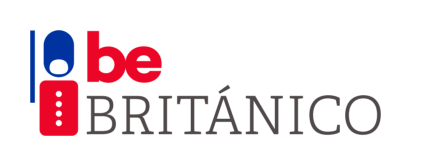Welcome back, Británico friends! Gracias a la recomendación de nuestros seguidores, el día de hoy hablaremos sobre la diferencia entre “say” y “tell”. Say me, say to me, tell me, tell to me? ¿No significan lo mismo? ¿Todas están bien? ¡No te preocupes! El blog del BRITÁNICO te ayudará a resolver estas dudas.
► BRITÁNICO Tip: A decir verdad, ambos significan lo mismo. Las diferencias son de énfasis, gramática y collocation. ¡Comencemos! 😉
¿Cuándo se debe usar “say”?
1) Podrías interpretar que por lo general el objeto de “say” está sólo en el mensaje, El “qué se dijo”. En inglés, say something:
– The professor said his students hadn’t improved much.
– She says all the time you’re cute but too shy!
– The footballer said the referee had been too unfair.
– …And then they say, ‘We’ve changed plans, mate’. Can you believe that?
2) Si quieres mencionar a quién se le dio el mensaje, añade “to” antes del objeto indirecto. Observa:
– The professor said TO THE PRINCIPAL his students hadn’t improved much.
– She says TO ME all the time you’re cute but too shy!
– The footballer said TO THE PRESS the referee had been too unfair.
– …And then they say TO US, ‘We’ve changed plans, mate’. Can you believe that?
► BRITÁNICO Tip: Este uso es inusual y se reserva por lo general para situaciones formales. Finalmente, la palabra “that” es opcional. Las oraciones completas serían así:
– The professor said TO THE PRINCIPAL (that) his students hadn’t improved much.
– She says TO ME all the time (that) you’re cute but too shy!
– The footballer said TO THE PRESS (that) the referee had been too unfair.
– …And then they say TO US, ‘We’ve changed plans, mate’. Can you believe that?
¿Cuándo se debe utilizar “tell”?
1) Cuando nos referimos ya no a uno sino a dos conceptos: a quién se le dijo y qué se le dijo. En inglés, tell someone something:
– I told him I hadn’t understood his plan.
– My best friend sometimes tells me he’d like to quit his job.
– The congressmen told the people they were sorry about the scandal.
► BRITÁNICO Tip: una vez más, la palabra “that” es opcional. Las oraciones completas serían así:
– I told him (that) I hadn’t understood his plan.
– My best friend sometimes tells me (that) he’d like to quit his job.
– The congressmen told the people (that) they were sorry about the scandal.
Las diferencias entre “say” y “tell” en resumen:
Entonces, so far, tenemos que “say” y “tell” significan lo mismo, las diferencias son estas:
– SAY se centra en qué mensaje y TELL en qué mensaje y a quién.
– Gramaticalmente, estas alternativas son posibles:
1) She said (THAT) the weather was perfect for a walk.
2) She said TO ME (THAT) the weather was perfect for a walk.
3) She told ME (THAT) the weather was perfect for a walk.
Mientras que estas, ni las pienses, they’re not English :p
❌ She said ME (THAT)…
❌ She told TO ME (THAT)…
❌ She told (THAT)….
Hasta acá hemos desarrollado significado y gramática, ¡esperamos esté todo claro! Ahora nos falta collocation 😉
Lista de collocations usando “say” y “tell”
Como sabes, los collocations son frases predeterminadas y algunas varían entre lengua. “Blanco y negro” es “Black and white” en inglés, por ejemplo. La única manera de aprender estas frases es a través de memoria y práctica. Acá te dejamos una lista de collocations con say / tell:
| Say | Ejemplo |
| Hello/goodbye | I’m writing because I just wanted to say hello. |
| Something | Why are you so quiet, say something! |
| Nothing | Please say nothing to mum, she’ll be mad. |
| A prayer | At school, we used to say prayers every Monday. |
| I’m not saying | Look, I’m not saying it’s a bad idea, but… |
| Say again, please | I can’t hear much, say again, please. |
| Say what you like | Say what you like, we won’t be offended. |
| Tell | Ejemplo |
| A joke/A story | Dad is great at telling all kinds of jokes! |
| The time | Excuse me, could you tell me the time, please? |
| A lie/The truth | He told the truth because it was too obvious. |
| The difference | I can’t tell the difference between these iPhones! |
| I’m not telling you | I’m not telling you you’re wrong, but… |
| A secret | She told me a secret I will never reveal! |
| Tell me about it | You had a bad day? Tell me about it! |
…And that’s it! We’ve said enough for today, Británico friends. ¡Ahora te toca a ti practicar todos los días y lucirte con tus teachers y amigos! Nosotros estaremos siempre pendientes en darte una mano para que mejores tu inglés todos los días. Solo te pedimos algo a cambio: comparte estas publicaciones en tus redes sociales y con tus compañeros de clase, tell everyone about the Británico Blog alright!!! 😀
¿Qué otra duda de inglés tienes? Escríbenos en los comentarios. 😉
No te pierdas nuestras otras publicaciones:
– ¿Cuándo y cómo se debe utilizar “too” y “very”?
– ¿Cuándo se debe utilizar “hear” y “listen”?
– ¿Cuándo se debe usar “do” y “make”?
– Guía para dominar el who, whom, whose, which, that y where












Dejar una respuesta